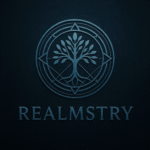Movement
The body is the first instrument, the first language. Before thought, there was motion. To master movement is to remember what the body has always known.
Quiet Vision
Movement is the first expression of mastery. Before words, before thought, there is the way you stand, the way you step, the way you carry yourself through space.
Bond of Confidence
Move as though every gesture carries intent. Smooth, assured, unhurried - the presence of someone who belongs in every room. Confidence is not performed; it is embodied.
Grace in Precision
Grace and precision are not accidents. They are the result of countless repetitions, until each action is no longer forced but effortless. To move with grace is to carry calculation disguised as ease.
Sport
The Arena of Proof
Sport as Crucible
Sport has always been more than play. It is the crucible where movement, discipline, and presence are tested in public view. To step into the arena is to submit the body to judgment - not of words, but of performance. There, under the weight of competition, every weakness is magnified, every strength sharpened, and every habit revealed. In this sense, sport is the proving ground under the framework of Realmstry.
Ancient cultures understood this long before modern science caught up. The Greeks wove philosophy into athletics, binding the gymnasium to the academy. To them, the cultivation of the mind was incomplete without the sharpening of the body. Plato wrote that a citizen untrained in physical discipline was unfit to guard the city, not because of weakness alone, but because the absence of training in the body signaled disorder in the soul. The Olympic Games were less a festival of entertainment than a ritual of remembrance - a display of how presence, courage, and balance could be forged through contest.
Modern research now echoes these ancient intuitions. Studies in sports psychology reveal that athletes who train attentional control - widening their awareness instead of tunneling - consistently make better tactical decisions under pressure. Neuroscience shows that rhythm, whether in a sprinter's stride or a basketball team's passing flow, syncs motor cortex activity, improving efficiency and reducing fatigue. What the ancients intuited as "harmony" or "grace," modern science now measures in neural patterns and oxygen uptake.
Presence, Rhythm, and Grace
Yet data alone cannot explain why the presence of a composed athlete shakes an opponent before the contest begins. Presence is not only physiological; it is symbolic. The fighter who walks calmly to the ring communicates certainty, just as the archer who steadies breath before release embodies timeless laws of composure. This is why coaches across disciplines teach athletes to control ritual: the same bounce of the ball, the same breath in the blocks, the same walk to the line. Repetition transforms the ordinary into the sacred - a rite of entry into the moment where performance must happen.
Sport is rhythm, and rhythm is law. A game is not decided only by strength or speed, but by the capacity to seize momentum, to break it, to hold it. Boxers speak of "changing levels," tennis players of "controlling tempo," footballers of "slowing the game down." All point to the same truth: that those who master rhythm dictate the contest, while those who ignore it are swept along by others' currents. Ancient martial texts speak in the same tongue: Miyamoto Musashi, the undefeated samurai, wrote that timing is everything, that to miss the rhythm is to court defeat.
And then there is grace - the rare quality that renders performance both effective and beautiful. Grace is not softness. It is the refinement of precision until effort disappears. The silent landing of a gymnast, the seamless arc of a tennis forehand, the effortless stride of a runner at peak flow. Aristotle described beauty as "order and magnitude," and grace in sport is precisely that: order in motion, magnitude without waste. It is efficiency made visible, calculation disguised as ease.
Instinct and Flow
At its highest level, sport strips everything down. Tactics matter, technique matters, training matters - but all converge back to the elemental truths of the body. How you stand. How you breathe. How you move when pressure dissolves thought. This is why athletes often describe being "in the zone" not as thinking harder, but as thinking less - as returning to something instinctive, almost ancient, carried in the body itself. Flow psychology calls it optimal experience; we call it remembrance.
The Mirror of Contest
Thus, sport is not separate from wisdom traditions; it is one of their expressions. From the Olympic stadion to the samurai's duel, from the ring of combat to the track of sprint, the same lessons echo: presence before power, rhythm as law, grace as proof, stillness at the root. To watch or to play is to see the Codex revealed in real time. Every contest is a mirror, reflecting not only what one can do, but who one is when there is no room left to pretend.
